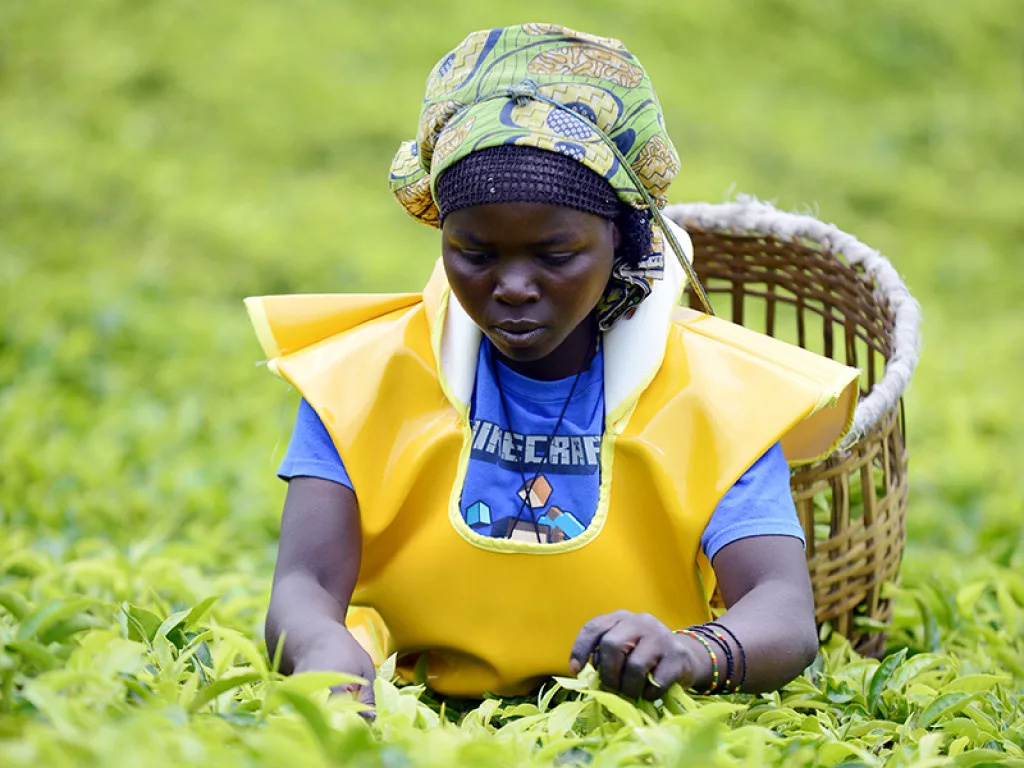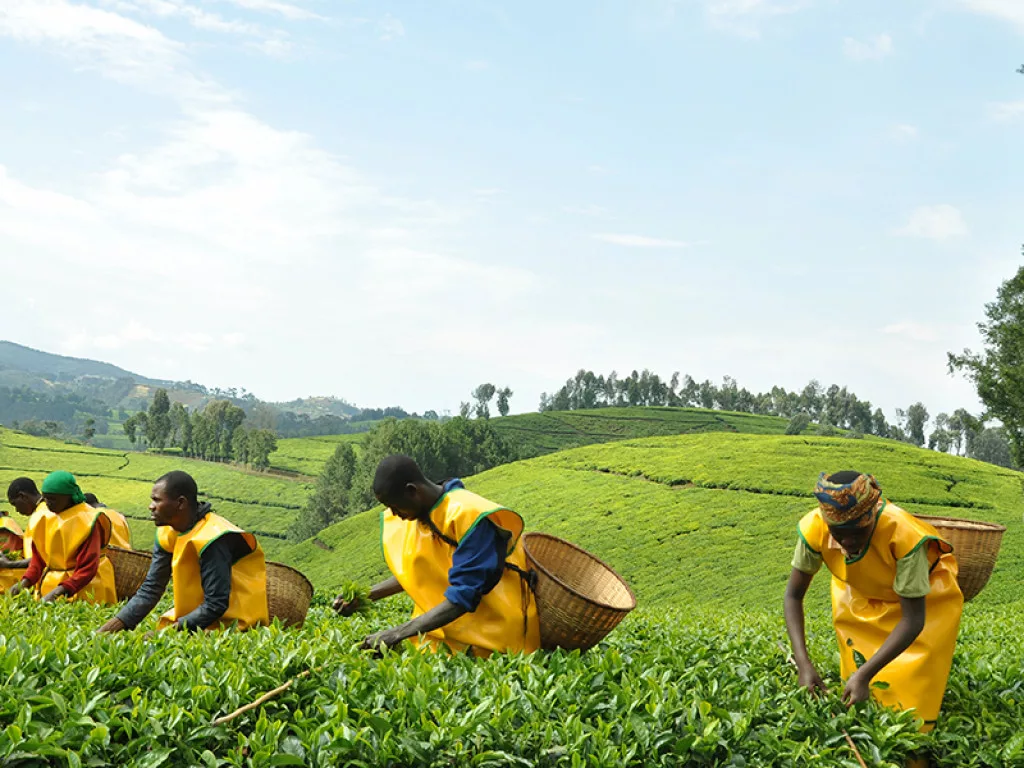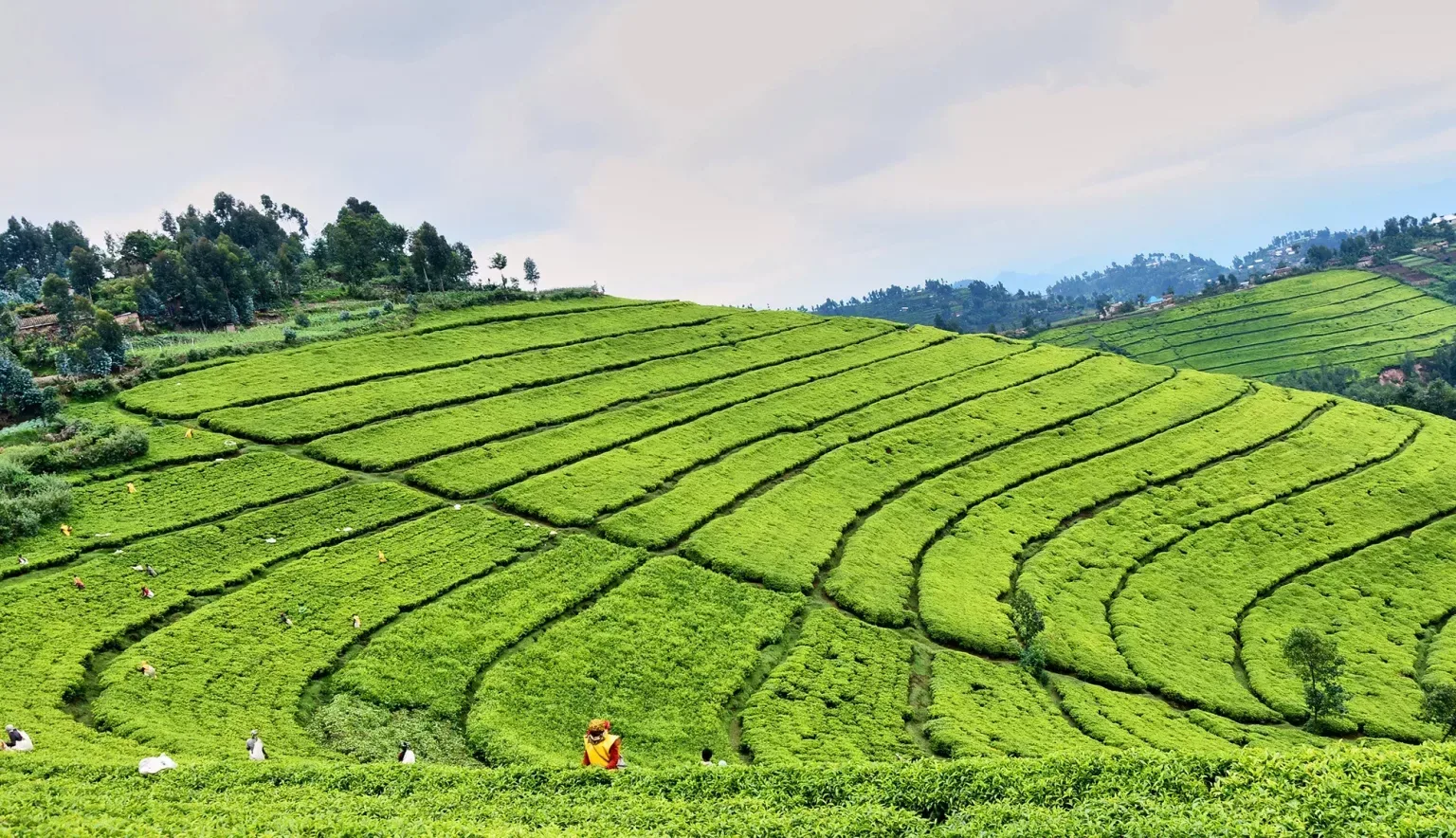Boasting a rich infusion of quality product combined with a community-centric focus, we speak with Michael Muhumuza, Marketing and Sales Manager at Rwanda Mountain Tea.
INTRODUCTION
On the verdant mountain slopes of Rwanda, surrounding the interior highlands of Kigali, a favourable climate and fertile volcanic soils combine to create the ideal conditions for tea production.
In the north-western region of ‘the Land of a Thousand Hills’, situated at an altitude ranging from 2,000 to 2,300 metres and spanning the hillsides of the Nile-Congo crest, lies the Rubaya and Nyabihu tea plantations. Producing world-renowned tea blends of esteemed quality, these are just two of the seven factories across the country owned and managed by Rwanda Mountain Tea (RMT).
It is this high altitude of the factories’ locations at 2,000 metres above sea level that truly differentiates the unique quality of RMT’s product.
“RMT is known for its quality. Even our slogan reads, ‘Where Quality Makes the Difference’,” opens Michael Muhumuza, RMT’s Marketing and Sales Manager.
Indeed, amidst the hubbub of the East African Tea Trade Association auctions in Mombasa, RMT’s product regularly sells at record cost and is guaranteed to fetch the highest price on a weekly basis as a mark of this quality.
As the biggest tea auction in the world, the event attracts the world’s major tea buyers. Subsequently, this is where RMT finds the majority of its clients looking to buy its quality product. Here, RMT rubs shoulders with the likes of Unilever, purchasing for its own brands such as Lipton, PG, and Lyons.
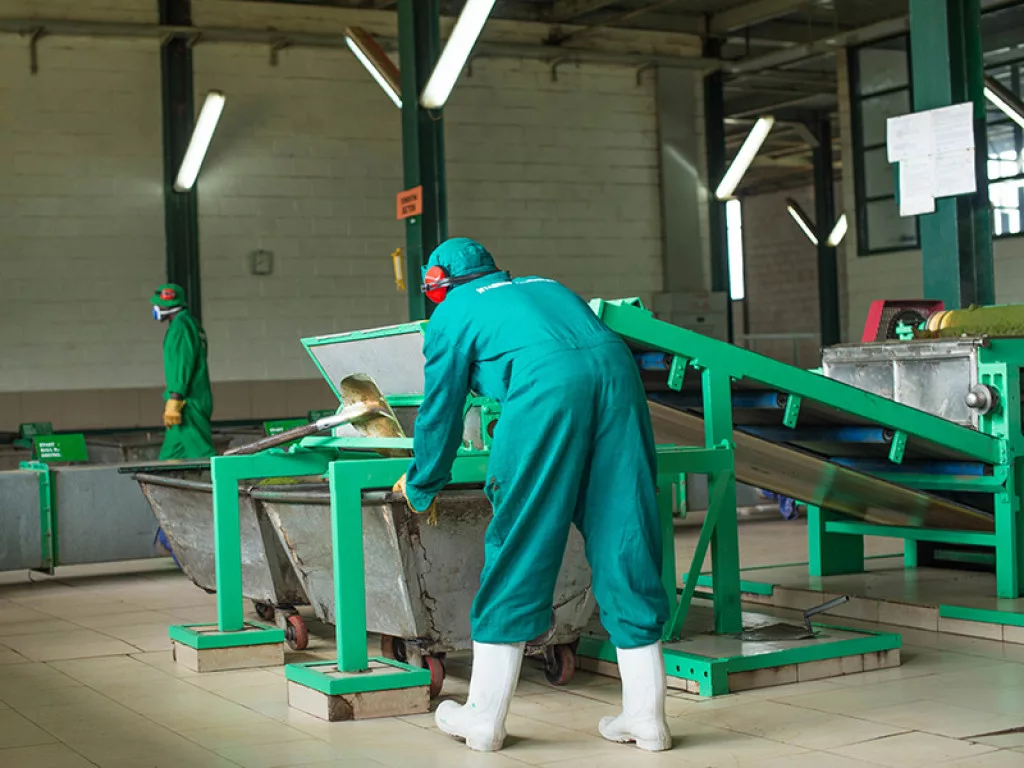
“Through this process, we don’t always know where the tea ends up,” adds Muhumuza. “In contrast, we also have clients who buy from us directly. We are in the process of trying to attract more of these buyers, since the auction can be unpredictable and through direct sales, we can have more of an influence on the price we get.”
In pursuit of greater market penetration, RMT has launched seven different house brands of tea – from the rich ginger aromas of Tangawizi tea, to loose leaf and bagged green tea.
“We created our own brands with the same name to add value to our product. This investment into value addition allows our products to reach a wider audience and enter different tea consuming markets,” Muhumuza explains.
“Hopefully you will see our products in a supermarket near you!”
With the goal of introducing these brands to global markets, RMT also invested in a blending and packaging facility back in 2010 to enable the launch of true value addition for the company.
RMT primarily exports its product alongside distribution in local sales. On the export side of the business, the majority of direct sales are destined for esteemed international clients in the UK, such as Taylors of Harrogate with whom RMT has a long-standing relationship.
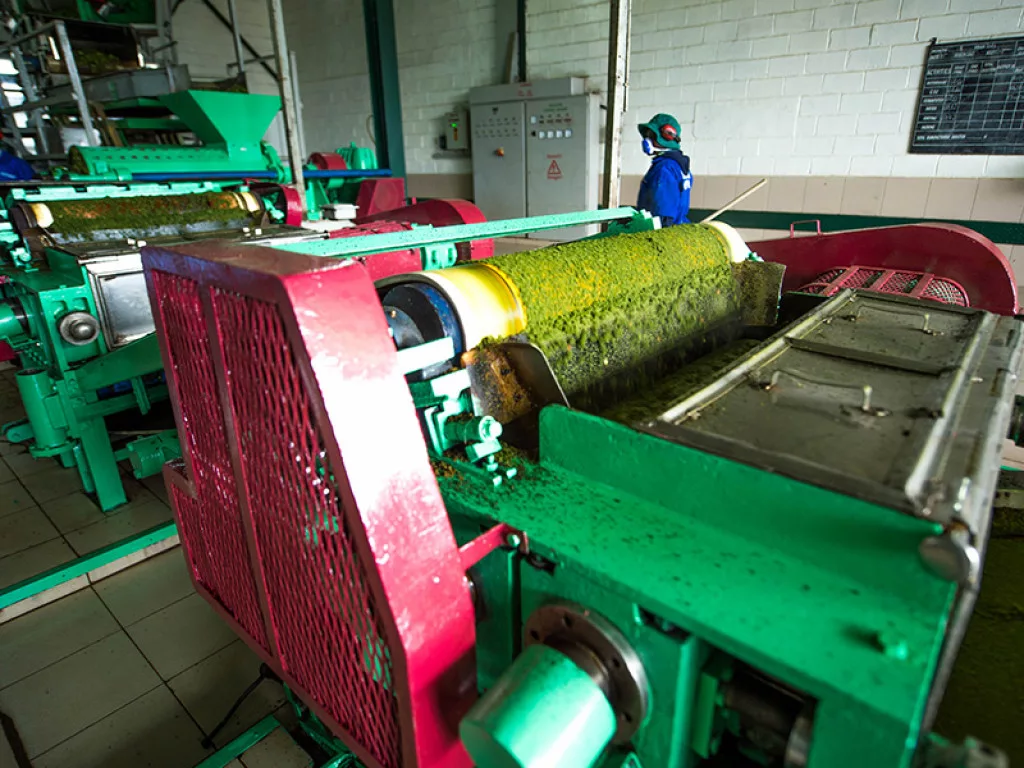
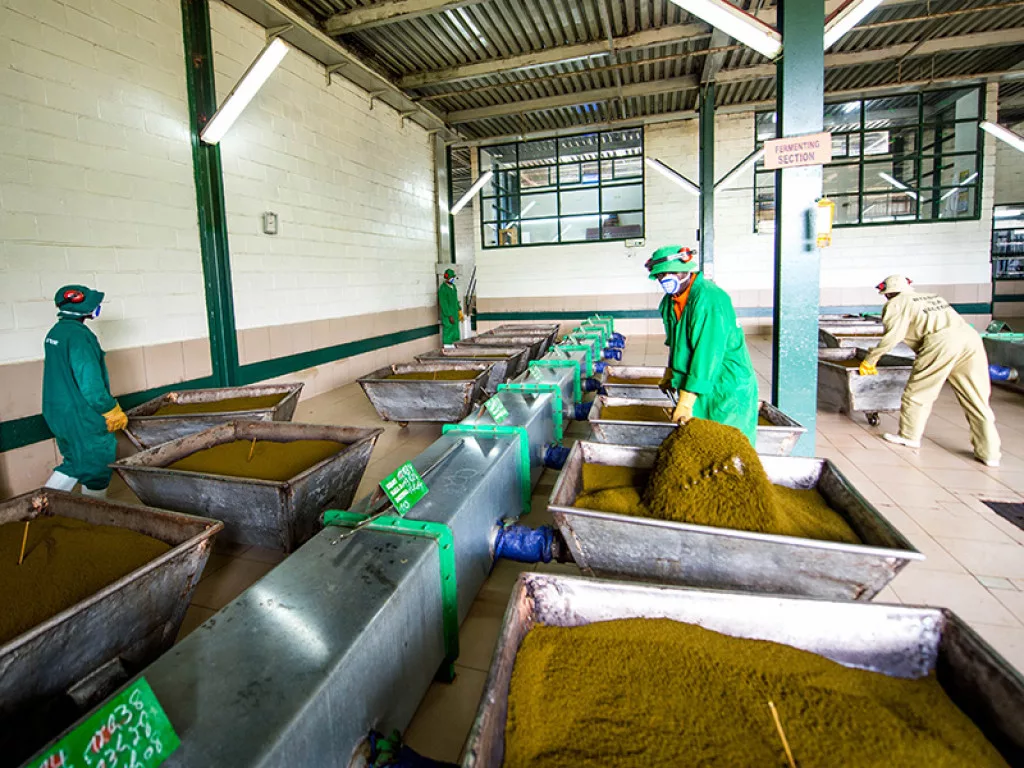
Muhumuza’s relationship with RMT is an intimate one, as a close-knit business run by a fellow family member. Although a native Rwandan, Muhumuza spent his childhood in Canada followed by higher education in the US, giving him the linguistic skills and perfect fluency in English that proved invaluable in developing the export side of the business when he returned to Rwanda and joined RMT in 2011.
“After I finished a marketing degree at university, my uncle asked if I would consider coming back to Rwanda to explore different opportunities, since the country had developed a lot after my family left in 1997. When I returned in 2011, I was pleasantly surprised to see how much progress had been made, especially with all the different business opportunities,” he recalls.
With the skills in place to fully exploit this increasingly conducive national business environment, RMT’s foray into export trade continues to flourish.
“We have been working with Taylors of Harrogate for many years. In fact, at least once a year someone from Taylors comes to visit our factories. They also help us and contribute a lot to the various CSR campaigns that we have here at RMT,” he tells us.
“Rwanda Mountain Tea is committed to employing, training, and developing a diversified workforce. We take great pride in this as a company. But even more, as Rwandans”
Michael Muhumuza, Marketing and Sales Manager, Rwanda Mountain Tea
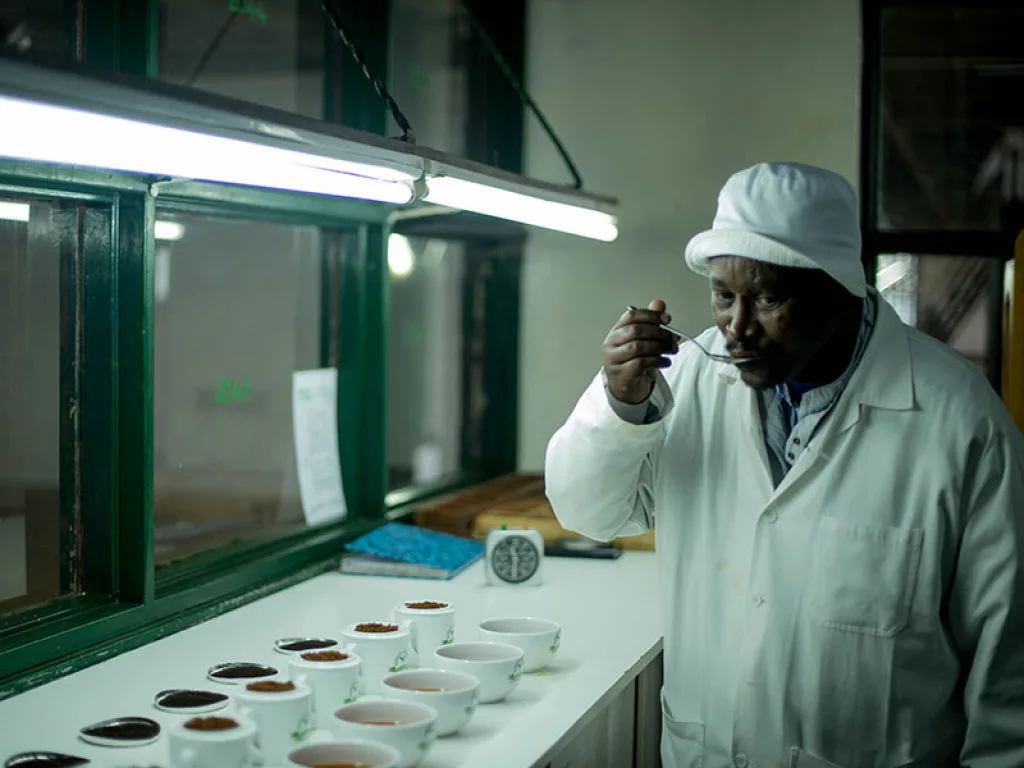
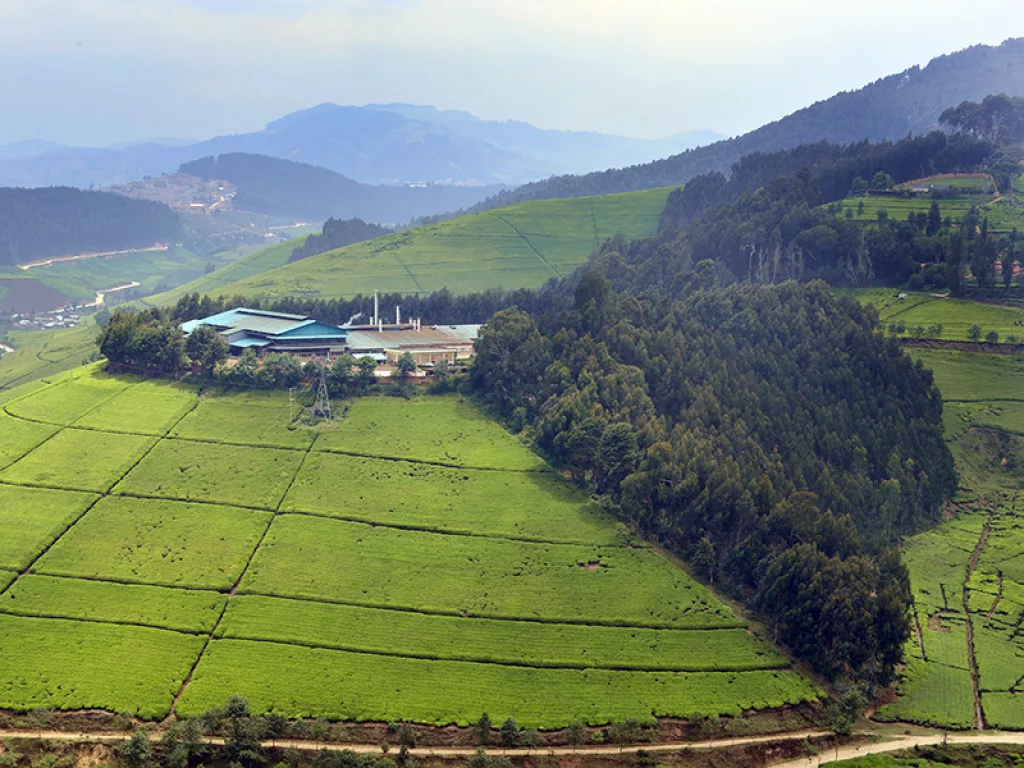
WELFARE FOR WORKERS
Continuing the topic of CSR, Muhumuza emphasises how a concern for the welfare of the community, both within and surrounding the company, is of paramount importance to RMT.
In such a labour-intensive industry as tea production, tea ‘pluckers’ form the majority of the RMT workforce, working on a seasonal basis.
In addition to this, RMT consists of approximately 60 workers at the head office in Kigali, roughly 100 full-time employees per factory and a fluctuating number of 1,000 part time or seasonal employees.
“RMT is committed to employing, training, and developing a diversified workforce. We take great pride in this as a company, but even more, as Rwandans,” Muhumuza states proudly.
Most recently, RMT undertook a CSR initiative whereby the company’s best tea pickers were rewarded with a smartphone in recognition of their efforts.
Since tea picking is a means of employment that is overwhelmingly occupied by women, RMT endeavours to support these workers, many of whom have families, by installing Early Childhood Development (ECD) centres at each factory and clean water stations across the facilities.
“We are so dependent on these women, who are responsible for the most important process in tea production. These day care centres for children have been very rewarding for us as a company, because they support the entire family. The parents can go to work knowing their children are getting an education in a safe, friendly and healthy environment.
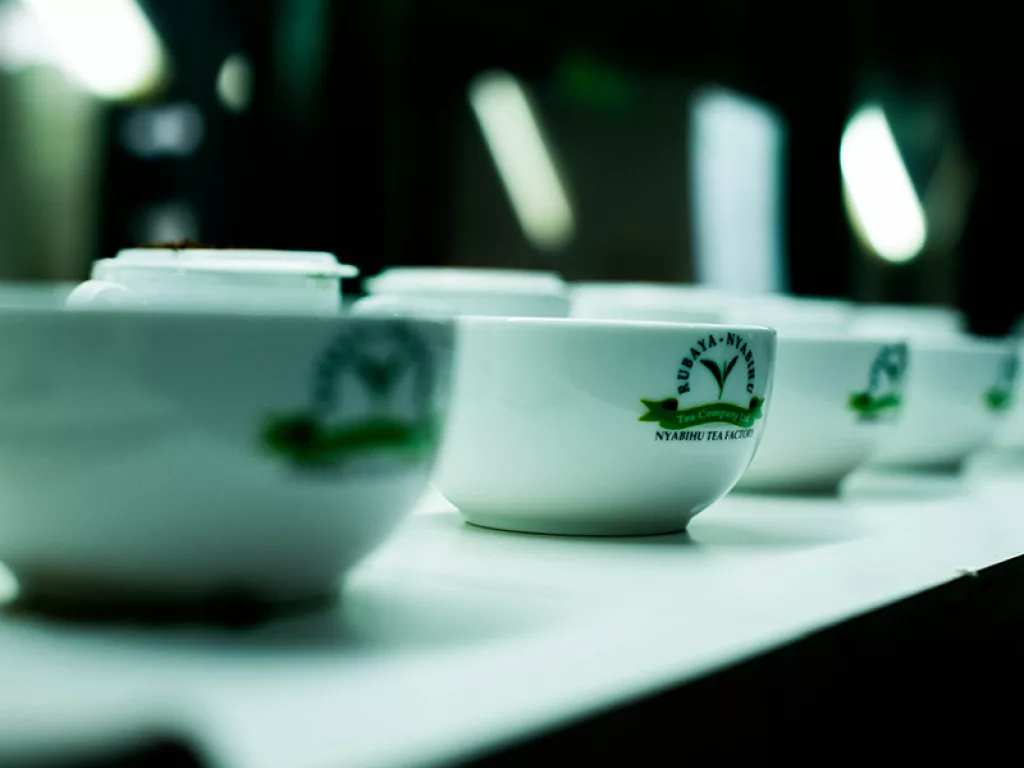
“Our Nyabihu tea factory has three childcare centres,” he tells us. “The purpose of this project is to support female tea pluckers in raising their children with better standards of living.”
All RMT pluckers are celebrated on a yearly basis with the annual ‘Pluckers Day’, which Muhumuza describes as an appreciation day for workers.
“During this event, staff from head office, the factories, local leaders as well as our chairman all go to the factory and celebrate with our pluckers,” he explains.
Alongside an awards ceremony where prizes are doled out, the event is crucial for branching communication between the different segments of the RMT workforce and provides a valuable opportunity for pluckers to voice any concerns they may have to senior members of the company.
Aside from this, RMT ensures that it adheres to all international standards, from food and safety certifications (ISO 22000: 2005) to Rainforest Alliance certification to guarantee that no child labour has been used within the company’s production.
“We also ensure that our staff are dressed in the proper equipment when plucking, and that we follow good practices across every tea making process.”
Returning to the importance of RMT’s close working relationship with Taylors of Harrogate, Muhumuza highlights the invaluable assistance provided by the company during the recent turbulence of the COVID-19 pandemic.
“We had to ensure that all our workers were well taken care of and protected. So, we built several hand washing stations at all our factories and sent masks to the head office, factories, and surrounding communities.
“I can’t speak of this without mentioning our friends at Taylors of Harrogate, who contributed to this cause by allocating funds that enabled it to go so well.”
“Where Quality Makes a Difference”
Rwanda Mountain Tea
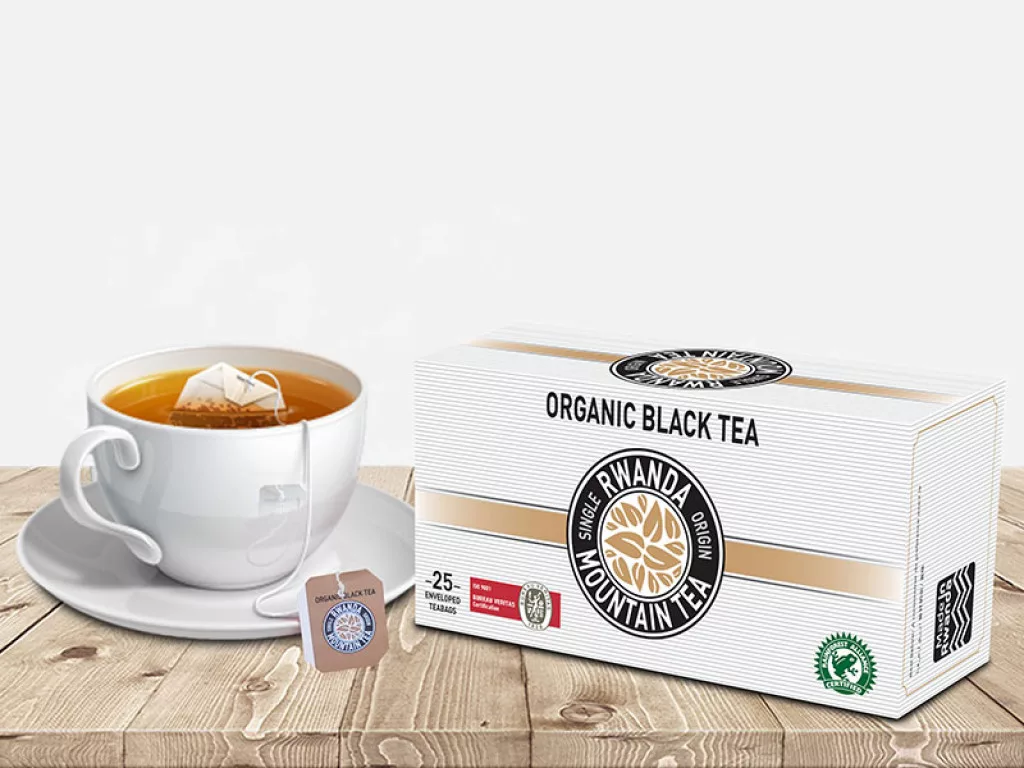
INVESTING FOR THE FUTURE
Aside from dedicating time and resources to these community initiatives, RMT invests in various industries including construction and hydropower as an invaluable source of renewable energy. Currently, a significant portion of investment at RMT is being directed into the expansion of tea production facilities to increase factory capacity.
Within the construction sector, RMT recently invested in a concrete production plant that operates under I.I.C – an RMT-owned company.
“The reason that we invested in this plant is due to our next project – the hydropower plant – which obviously requires a significant amount of concrete,” Muhumuza explains.
Located in the Nyabihu District, the Giciye Hydro Plant was inaugurated in 2015 by H.E. Paul Kagame, the President of the Republic of Rwanda. The project was significant on a national level as an energy generation project initiated by a private investor, as a result of government policy seeking to encourage private sector involvement in the development of renewable energy nationwide. Altogether, the plant has the capacity to produce 20 megawatts.
For RMT itself, the plant provides an invaluable source of power that feeds both the factories and local communities.
“We invested in this hydropower plant for our factories – since many of them are in remote locations, they don’t always have the most reliable electricity,” he comments.
“This was also a way of cutting costs in terms of our electricity bills, by generating power for both our factories and the surrounding communities.”
Muhumuza draws to a close by urging more people to come to Rwanda and witness the beauty of his country first-hand. Indeed, with the rolling hills of the tea plantations located near the forested peaks populated by mountain gorillas, there really is no better place to combine some sightseeing with a cup of tea.
